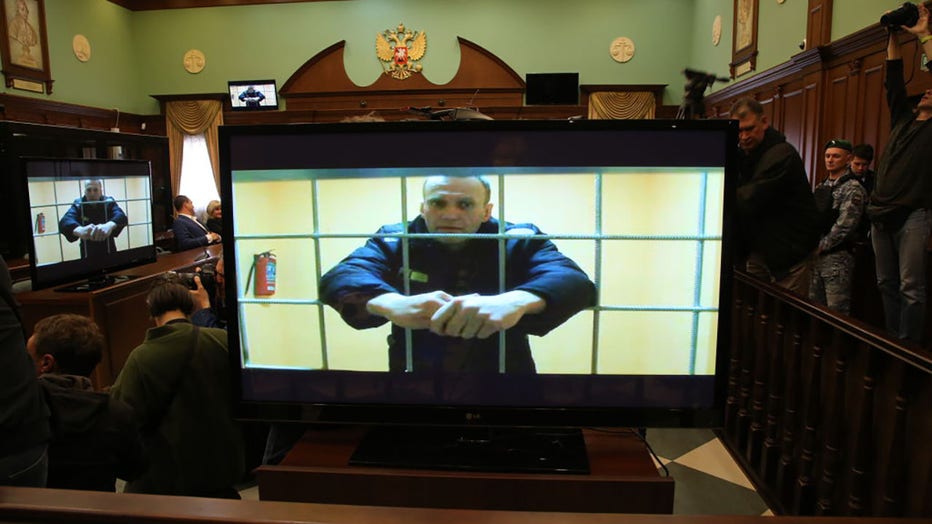Alexei Navalny, Russian opposition leader, dies in prison
MOSCOW - Alexei Navalny, a Russian opposition leader, lawyer, and anti-corruption activist, died in prison on Friday, the Associated Press reported, citing the country’s prison agency.
President Joe Biden said although the exact cause of death is unknown, he holds Russian President Vladimir Putin responsible for Navalny's death.
Navalny was a fierce foe of Putin who crusaded against official corruption and staged massive anti-Kremlin protests. He had been serving a 19-year sentence on charges of extremism.
The stunning news of Navalny’s death, which occurred less than a month before an election that will give Putin another six years in power, brought renewed criticism and outrage directed at the Kremlin leader who has cracked down on all opposition at home.
Biden said his death brings new urgency to the need for Congress to approve tens of billions of dollars for Ukraine to stave off Moscow's invasion.
"The failure to support Ukraine at this critical moment will never be forgotten," Biden said. "And the clock is ticking. This has to happen. We have to help now."
In a statement, the Federal Prison Service said Navalny felt unwell after a walk on Friday and lost consciousness. An ambulance arrived, but he could not be revived.

FILE - Russian opposition politician, anti-corruption campaigner and founder of the Anti-Corruption Foundation (FBK), Alexey Navalny is seen on the screen during his legal appeal against his nine-year prison sentence, in Moscows City Court, on May 24
The service said the cause of death was "being established."
Kremlin spokesman Dmitry Peskov said Putin was informed of Navalny’s death. Navalny’s spokeswoman Kira Yarmysh said on X that the politician’s team had "no confirmation of his death" so far.
"Alexey's lawyer is currently on his way to Kharp. As soon as we have some information, we will report on it," Yarmysh wrote.
Navalny had been behind bars since January 2021, when he returned to Moscow after recuperating in Germany from nerve agent poisoning that he blamed on the Kremlin. Since then, he received three prison sentences, all of which he rejected as politically motivated.
Before his arrest, he campaigned against official corruption, organized major anti-Kremlin protests and ran for public office.
News of his death prompted Western leaders and others who have opposed Putin’s rule to praise Navalny’s bravery.
RELATED: Donald Trump threatens NATO, says Russia could 'do whatever the hell they want'
If confirmed, "his death in a Russian prison and the fixation and fear of one man only underscores the weakness and rot at the heart of the system that Putin has built. Russia is responsible for this," U.S. Secretary of State Antony Blinken said while at a conference in Germany.
German Chancellor Olaf Scholz said Navalny "has probably now paid for this courage with his life."
Standing at Scholz's side, Ukrainian President Volodymyr Zelenskyy — whose country is fending off Russian invasion — said: "Putin doesn’t care who dies in order for him to hold onto his position."
In December, Navalny was moved from his former prison in the Vladimir region of central Russia to a "special regime" penal colony — the highest security level of prisons in Russia — above the Arctic Circle.
His allies decried the transfer to a colony in the town of Kharp, in the Yamalo-Nenets region about 1,900 kilometers (1,200 miles) northeast of Moscow, as yet another attempt to force Navalny into silence.
The remote region is notorious for long and severe winters. Kharp is about 100 kilometers (60 miles) from Vorkuta, whose coal mines were part of the Soviet gulag prison-camp system.
Navalny was born in Butyn, about 40 kilometers (25 miles) outside of Moscow, according to the Associated Press. He received a law degree from People’s Friendship University in 1998 and did a fellowship at Yale in 2010.
The Associated Press contributed to this report.

